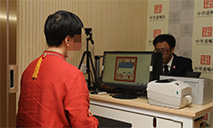NATO summit to fan flames of Ukraine crisis, unlikely to reach major concrete consensus: expert
As NATO leaders gathered on Thursday to discuss the Ukraine crisis, the US has been mulling new sanctions on Russia to further pressure it. While the military alliance plans to boost military deployments in eastern Europe, it also targeted China - an extraterritorial third-party that has been calling for peaceful dialogue to de-escalate the situation - and continued to distort its role, which, some Chinese experts said, would only fan the flames, resulting in a prolonged conflict and a growing humanitarian crisis that heavily weighs on Europe.
In a statement, NATO continues to condemn Russia and calls on Belarus to end its complicity. The statement also calls on China to "abstain from supporting Russia's war effort."
23 years ago on March 24, NATO started its 78 days of bombing Yugoslavia, which killed thousands of civilians, and NATO starting its summit this year on the same date to strengthen its military deployments and to further arm Ukraine with weapons in the name of "peace" is truly ironic and hypocritical, said Chinese analysts.
US former secretary of state Madeleine Albright, who handled the diplomatic crisis with China after NATO bombed the Chinese embassy in Belgrade 23 years ago, died on Wednesday local time.
US President Joe Biden was scheduled to address the NATO meeting, meet European leaders and further coordinate the stances of the US allies to wrestle with Russia, particularly to reduce Europe's dependence on Russian energy as a major "punishment." However, pressuring Russia to its limits would only result in unpredictable consequences, leading the ongoing crisis into an impasse and eventually hurting the interests of Europe, some experts warned.
Ahead of the summit on Thursday, NATO chief Jens Stoltenberg told media that Russian President Vladimir Putin "made a big mistake" with the military operation in Ukraine, and the NATO planned to ramp up support for Ukraine in terms of deployments in eastern Europe. He also briefed reporters earlier that the leaders to the summit are expected to agree on strengthening NATO's posture in "all domains," including the deployment of four new NATO battle groups in Bulgaria, Hungary, Romania and Slovakia, according to a briefing statement on the website of NATO.
"NATO is clearly aiming to pressure Russia to its limits," Yang Jin, an associate research fellow at the Institute of Russian, Eastern European, and Central Asian Studies under the Chinese Academy of Social Sciences, told the Global Times on Thursday.
NATO, along with the US and European leaders, have continued condemning Russia over the Ukraine situation. They would further increase military support for Ukraine and help it strengthen its defense capabilities, Yang said, noting that all these moves would play a negative role in the current situation and only fuel the tensions, causing prolonged conflicts.
Some experts also warned that rather than blaming others for causing the current tensions, NATO should reflect on its own role as a legacy of the Cold War. Its pursuit of absolute security and the idea of exclusiveness pose a major obstacle to the path of realizing common security in Europe.
Given the divided stances among European countries, it's unlikely for the summit and for the Biden administration to reach any major concrete consensus, experts predicted.
A 'hijacked' Europe
In Brussels, Biden would meet NATO leaders, G7 and EU leaders in order to coordinate moves and project a unified front against Russia. US National Security Adviser Jake Sullivan told reporters ahead of Biden's trip to Europe that Biden would join allies in imposing further sanctions on Russia and tightening existing ones.
As Russia's military operation in Ukraine entered the second month, the US-led sanctions against Russia have extended from energy to finance, and even to cultural and sports activities. To help the EU reduce its dependence on Russian energy, the Biden administration is likely to offer more liquefied natural gas to Europe, which would also be a key point of Biden's trip, according to media reports.
"The summit may reach a certain consensus, but it will be difficult to implement it," Wang Yiwei, director of the Institute of International Affairs at Renmin University of China in Beijing, told the Global Times on Thursday.
Many countries in the EU now regard sanctions as a double-edged sword and are unwilling to fully cooperate with the sanctions strategy of the US. Countries like France and Germany could not avoid importing Russian energy, and how much the US could compensate those countries remains unknown, Wang noted.
"The US is shifting its focus to the Indo-Pacific and to China. Predictably, it's reluctant to invest too much in NATO, so European countries will also have doubts about the US commitment," he said.
There's a major split within Europe on sanctions against Russia. German Chancellor Olaf Scholz warned on Wednesday that an immediate ban on Russian energy imports would trigger an economic recession in Germany and across Europe, Politico reported. And his remarks represented a blunt rejection to the calls from some EU countries, particularly in Eastern Europe, for a swift ban on Russian energy imports in response to the Ukraine situation, experts pointed out.
In response to the escalation of the US-led Western sanctions, Putin also reacted by demanding "unfriendly countries" pay for Russia's gas in rubles amid soaring gas prices.
Russian deputy ambassador to the UN Dmitry Polyanskiy said Russia retains the right to use nuclear weapons if the country is "provoked" by NATO as the country faced the escalating rhetoric of the military bloc, according to reports.
"Europe has been hijacked by NATO and the US, and they are highly dependent on NATO for their military security, so they have to increase their troop's deployment and military strength. Europeans already have a sense of insecurity fearing that the US will abandon Europe at any moment," Wang said.
A real solution
Not only has the military alliance added deterrence to Russia, it also distorted the role of China and tried to "throw mud" at the country that has been holding a neutral position and actively encouraging the relevant sides to resolve the dispute through peaceful dialogue.
Stoltenberg told reporters ahead of the meeting that "China has provided Russia with political support, including spreading blatant lies and disinformation. And allies are concerned that China could provide material support for the Russian invasion."
The Chinese Foreign Ministry spokesperson defied the NATO's accusation against China on Thursday, saying that it's disinformation itself. To resolve the crisis, "we need rationality and a cooling-down attitude rather than fanning the flames," said Wang Wenbin, spokesperson of the ministry.
Some experts said NATO could take advantage of the concerns of European countries to find more grounds for its existence, which however remains a major obstacle to Europe in implementing truly common security. Those accusations and disinformation concerning China's role in the Ukraine crisis once again showed that the US-led military bloc turned a blind eye toward the solution proposed by China in helping hold the dialogue between the relevant parties in the crisis. However, the true intention of the US is to unify Europe to maintain Washington's hegemony to continue containing China, experts said.
Some US officials also toughened up the rhetoric against China. For example, US Commerce Secretary Gina Raimondo warned that the US will enforce export controls if Chinese companies send semiconductors to Russia that were made with US technology, Reuters said.
Since the Ukraine crisis began, China has made an independent judgment and constructive efforts. China has insisted on independent diplomatic policies, respected the sovereignty and integrity of every country, abided by the UN Charter and principles, paid attention to the security concerns of all countries, and supported all efforts that facilitate solving the crisis peacefully, Chinese officials reiterated recently.
China will never accept US threats and coercion, and if the US takes measures that harm China's legitimate interests and the interests of Chinese enterprises and individuals, China will not sit idly by and will make a strong response, an anonymous official told the Global Times on March 18.
What the Ukraine crisis tells the world is that the pursuit of exclusiveness or absolute security, building its own security on the insecurity of other countries eventually leads to conflicts, Chinese State Councilor and Foreign Minister Wang Yi said during his meeting with Pakistan Army chief General Qamar Javed Bajwa on Wednesday local time. "In the 21st century, confrontations of military alliances and blocs have no future," the Chinese official said.
"The truth is that US commitment to NATO is bound to shrink as it shifts attention to the Indo-Pacific region, and what European countries need more is to seek strategic autonomy and a security strategic structure that can coexist with Russia," Wang Yiwei said.
Photos
 Increasingly more young adults in China register wills that include virtual assets
Increasingly more young adults in China register wills that include virtual assets Rapeseed flowers turn NW China's Luoping into picturesque spring wonderland
Rapeseed flowers turn NW China's Luoping into picturesque spring wonderland Why do people in China fall for animated characters like LinaBell and Bing Dwen Dwen?
Why do people in China fall for animated characters like LinaBell and Bing Dwen Dwen? Photo Album: architecture in Beijing merging history and modernity
Photo Album: architecture in Beijing merging history and modernity
Related Stories
Copyright © 2022 People's Daily Online. All Rights Reserved.






